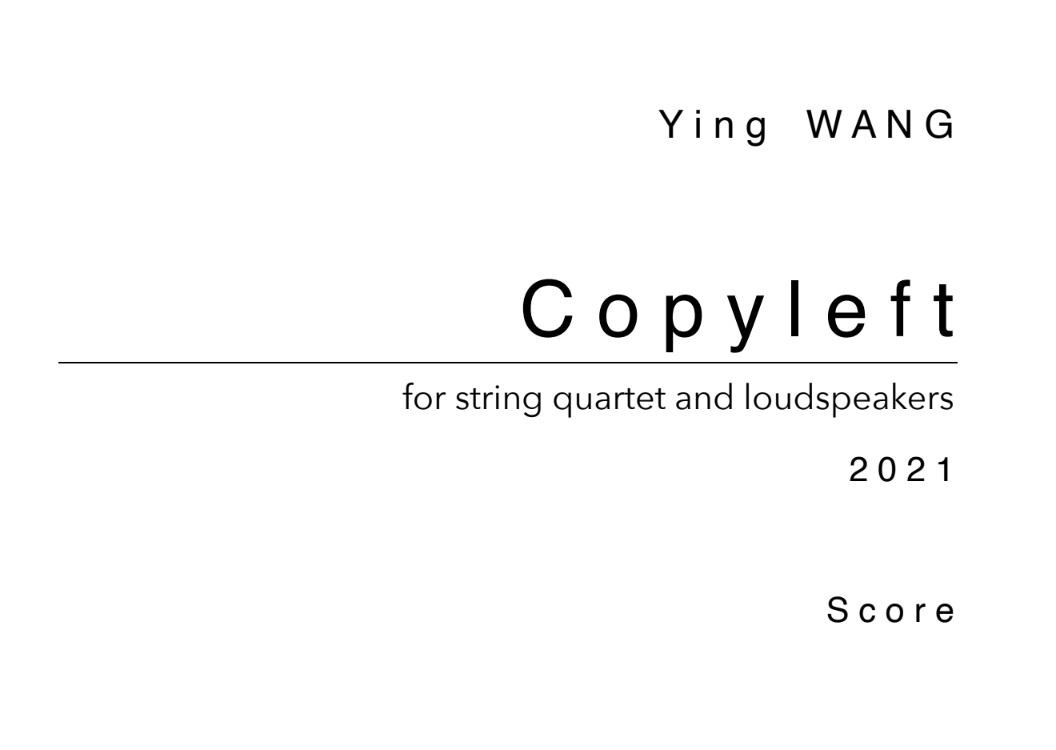
Copyleft
for string quartet and loud speakers (2021), 17 min.
Score Copyleft
Composition commission by Cité de la musique-Philharmonie de Paris, Taiwan National Kaohsiung Center for the Arts 台灣衛武營國家藝術中心 and L’Association Les Diotima.
First performance: 8.12.2022, Paris
Quatour Diotima
In “Copy Left,” several approaches I use in my artistic or compositional practice on a daily basis intersect with cultural and political questions that reach far beyond the realm of music and even art.
I am deeply influenced by my culture, the smells, the materials, the sounds of my childhood. And I have been, already as an early child, trained — and exclusively so — in the European musical tradition.
I am frequently confronted with the fact that I am being taken seriously as a composer only as long as I assume the role of a “mediator between cultures” or, worse still, as a representative of some questionable hyperhybridity with a jetset approach. This expectation usually comes with the best of intentions, but it also seems to imply that, with respect to the culture in which I live, the history within which I write, I remain relegated to an outside — as if I were forever caught in the process of having to “appropriate” a culture, while every European-born composer would not have to do that. Only on very rare occasions has my music been received outside of any framings of these kind.
I noticed that artistic strategies of explicit appropriation, while becoming increasingly attractive to ever more colleagues, play nearly no role in my own compositional practice. At the same time, I am fascinated by the question whether any artist isn’t always also copying herself. Certain compositional techniques can be understood as a work copying itself within the work.
And of course I am, on a daily basis, confronted with the fact that a great and rich culture, in which, as has been pointed out, a few things have been invented, today is uniformly tainted with the label of cheap imitation. This is a question of everyday experience as much as large- scale trade wars, which are enjoying a profound renaissance today. Politics at large remains committed to copy old models, something that is hardly in demand in the arts anymore.
Amongst these questions: a string quartet, which is part of this great tradition, so often copied, so often shredded, yet continually brought back to life, and which cannot simply be left on either side of the road [“links liegen lassen” in German]. Who has the copy right?